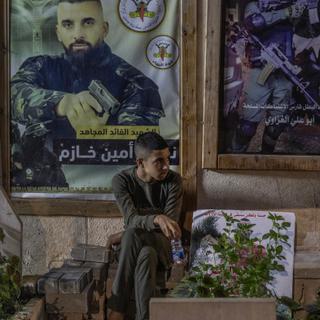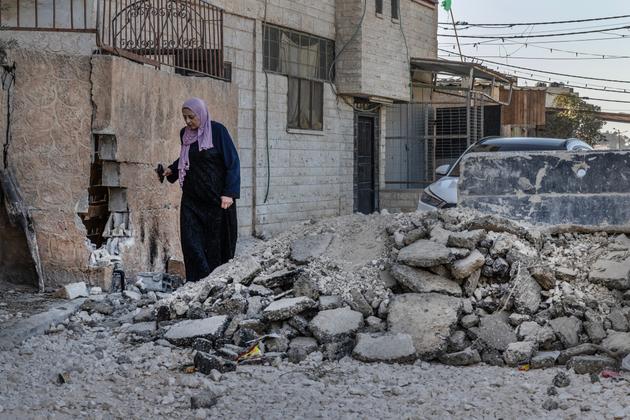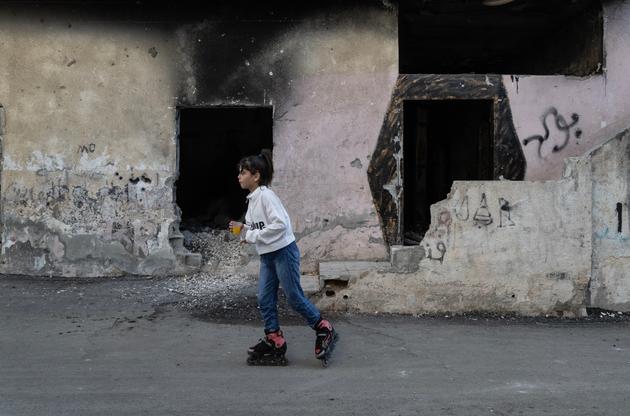


The West Bank, a cauldron threatening to explode
FeatureAnger is running high in the territory occupied by Israel where almost 200 Palestinians have been killed since October 7.
As the evening light faded, Ilyad El-Hazmi sat among the tombs in the Jenin cemetery. He goes there every day in memory of his son Amjad, who was killed two years ago by the Israeli army and whose body was never returned to him and is not buried here. In the "new new cemetery," as the place is called in the refugee camp in the town in the north of the occupied West Bank, other bereaved parents were settling down. They exchanged news in hushed tones: new deaths, the latest violence. The cemetery has become a public square. Its tombs, adorned with flowers, basil and mint bushes, turn death into a garden, the only one in the refugee camp. Somewhere, not far away, someone was shooting, calmly, unhurriedly. As if for recreation. Probably for training.


The latest operation by the Israeli army in Jenin ended a few hours earlier. It took place in the morning, which was unusual and fuelled chatter. With serious looks on their faces, the men and women in the cemetery said "one," "two" or "three," depending on the number of their children who fell as "martyrs" to the Israeli army. Apart from a few young people who were too curious or innocent, most of them were involved in armed groups belonging to the Jenin Brigade, also called the "rapid response" group, which is affiliated with the Al-Aqsa Martyrs Brigades, an offshoot of Fatah, the party of Palestinian President Mahmoud Abbas.
These boys, most of whom died with weapons in their hands and whose giant portraits cover the walls, "unite their loved ones like a family," said Ilyad, and he let out a hearty laugh. That's the kind of guy he is. He's energetic and boisterously happy, and when he launches into a volley of jokes in his big voice while lighting a cigarette, no one takes any notice. Everyone was keeping to themselves. A heavyset woman fell between two graves and got stuck between the stones. He laughed before helping her out. "The graves are packed together like sardines in a can, just like our houses, but this way we're closer together than the Israelis, aren't we?" he said.
'Potential martyrs'
Just before, he carefully placed his handgun, a 9mm, on a tombstone, to make himself more comfortable. These are families of the "resistance," an omnipresent generic term, all with a history as long as the struggle against the Israeli occupation, which began in 1967 after the Six-Day War. The son of a woman in black with a discreetly made-up face, sitting three graves away, used to make bombs, before being killed recently, a few hours before his wedding. All his four brothers have been arrested at one time or another. All are "potential martyrs."
You have 85% of this article left to read. The rest is for subscribers only.
